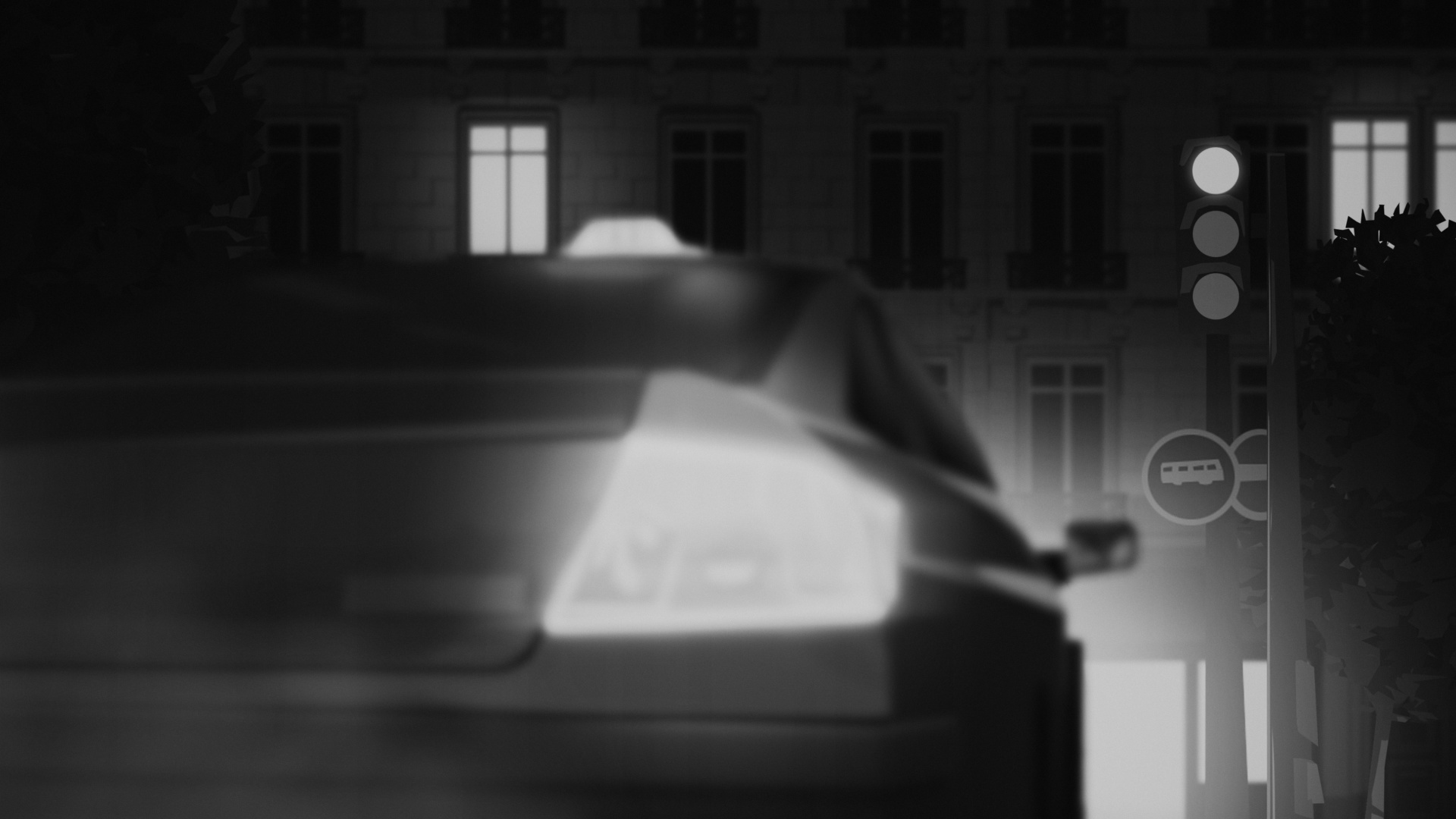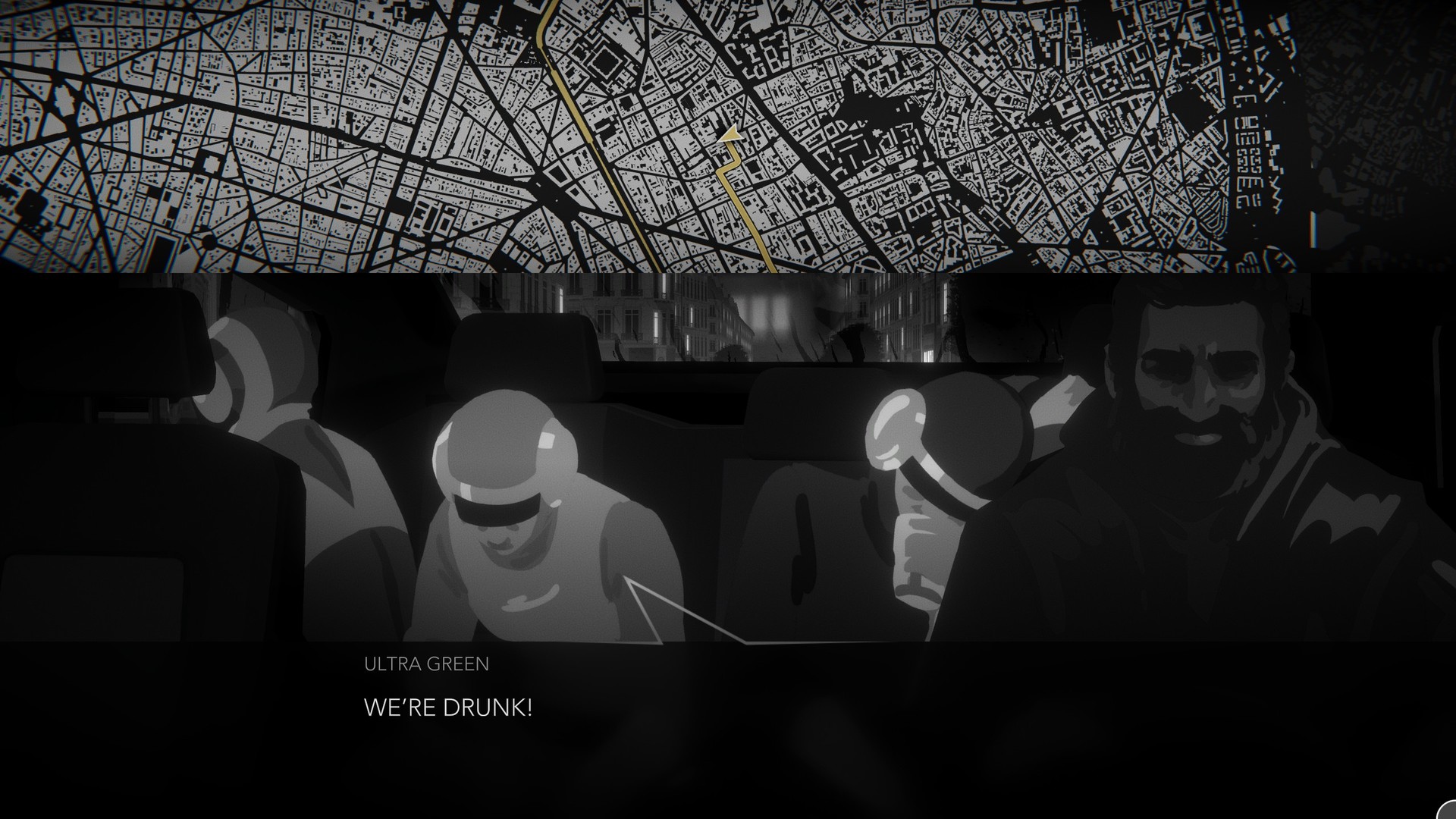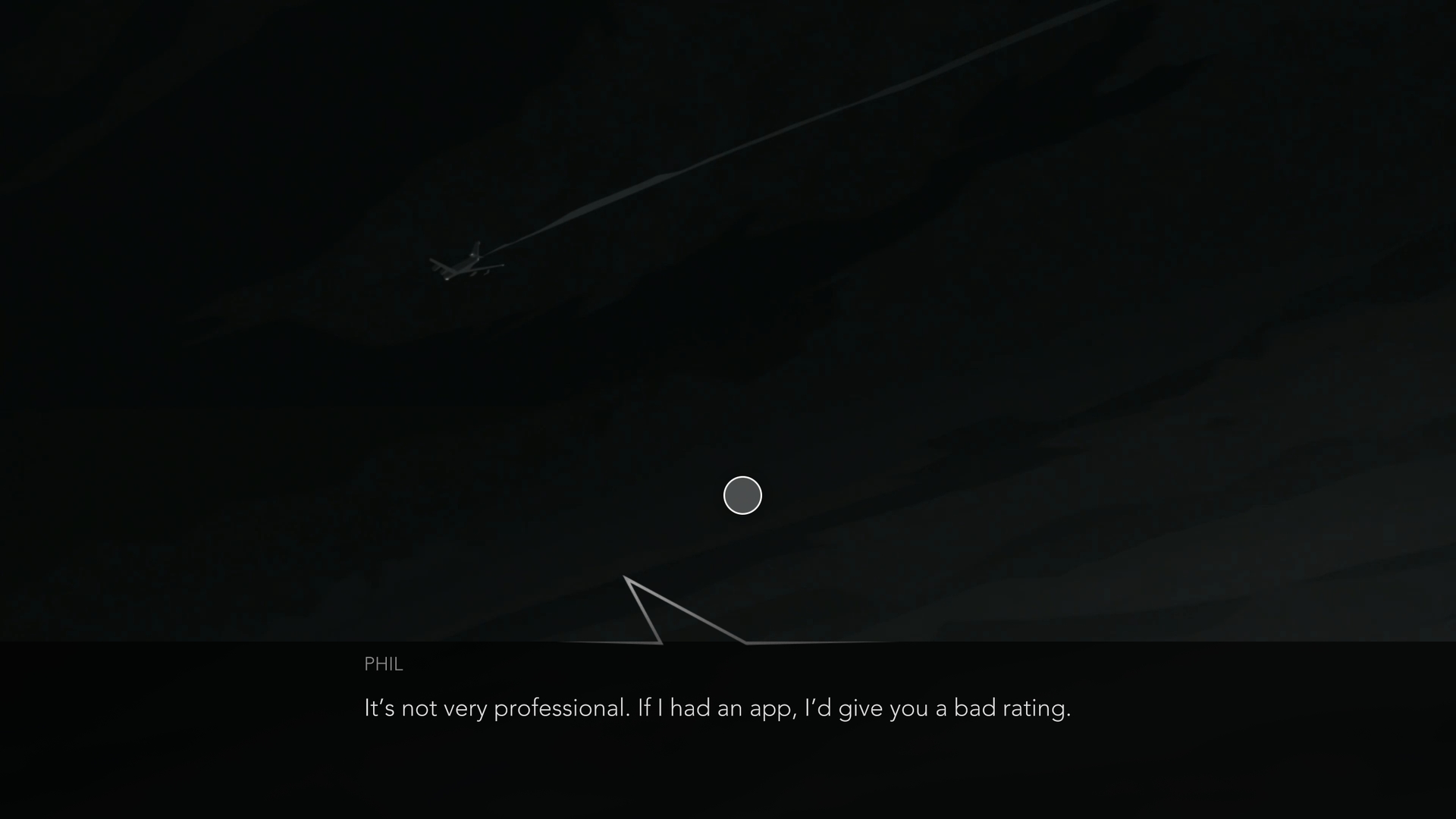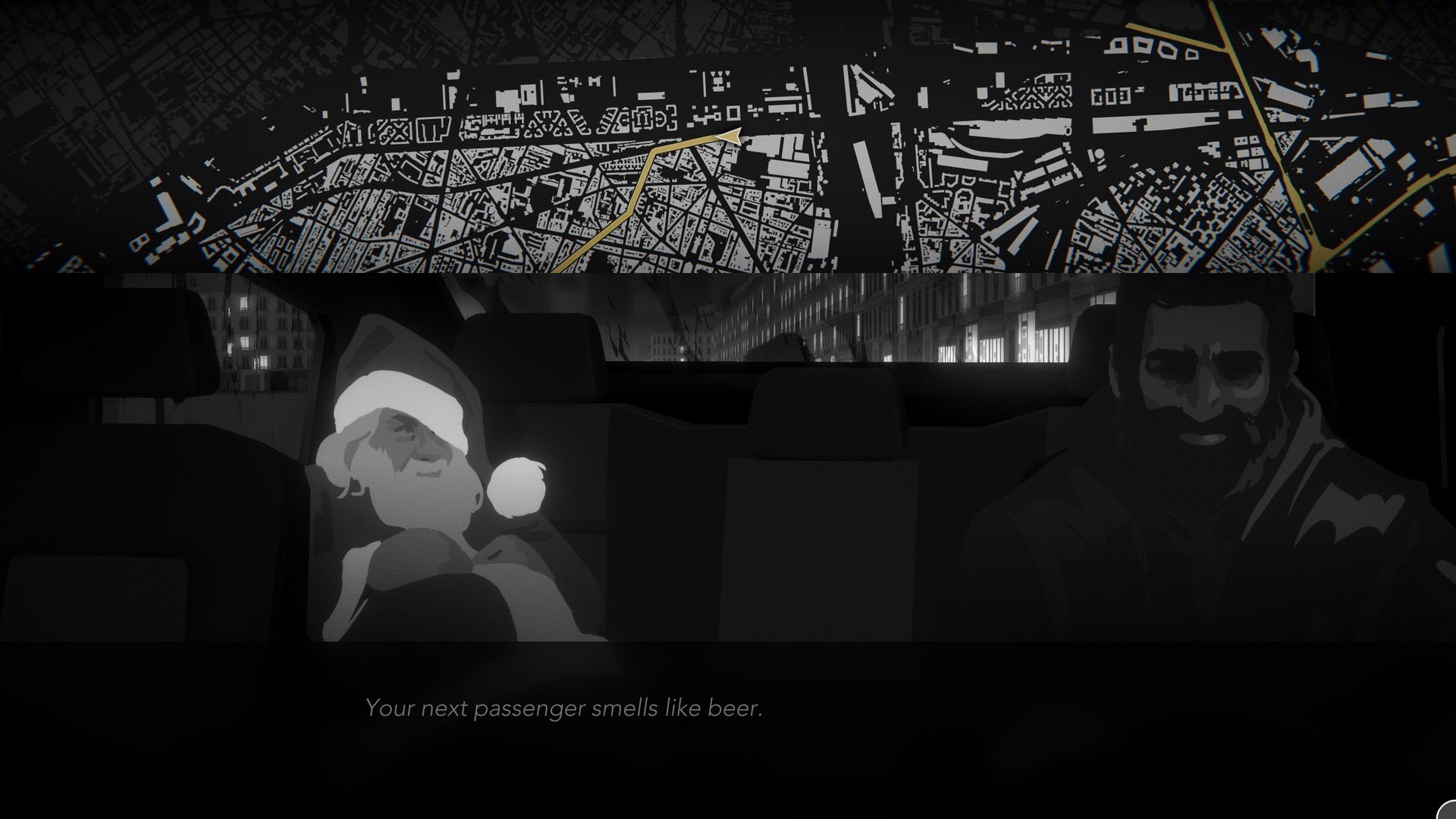Night Call Review
Who you gonna call?

Taxis are fascinating places. Some of the weirdest, funniest, and most profound conservations take place in them, self-contained and hidden from the world. As Night Call – Raw Fury’s deeply moody noir-infused detective simulator – sees them, they’re like confession boxes. Anonymity, urgency, and the intoxicating atmosphere of nighttime come together to create trust and secrecy between passenger and driver. Naturally, this makes taxi drivers ideal for some undercover police work.
That’s where you come in: Houssine, a Parisian taxi driver thrust into the life of a detective after recovering from a coma inflicted by a serial killer. During your late-night shifts, you must eke out a living ferrying folks around while also following leads and investigating cases. It’s a compelling premise, one supported by expressive writing that’s emotive and compelling. Night Call’s version of Paris is diverse, dark, funny, and absurd all at once.

Life on the streets is full of surprises. Twists and turns lie around every corner, and there’s rarely a dull moment. You’ll come across bizarre folks and have unpredictable encounters, all of which takes place through simple dialogue options. At its core, Night Call is a text adventure. You piece things together and solve murders, but that portion of the experience is mostly automated.
Evidence you collect – rumors, facts, crime scene analysis – pins to a noticeboard in your room, linked together by pinned threads. This board quickly fills with suspects, evidence, and clues. All connected and yet all seemingly random. Filtering through it can seem impossible, but there’s really not much to it. Infrequent liaisons with the police detective you’re working with will subtract or add suspects, and the noticeboard largely operates itself. Clues assemble themselves and align with the relevant suspects. All you have to do is choose a suspect when the time comes.

It feels like there’s something missing here. You can view the noticeboard up close, move pins around, and highlight a particular note, but it feels like it’s for show. It seems like you should be able to match clues with suspects and try to form connections, but you can’t do any of that. It ends up being little more than a mild curiosity to check out after your shifts. This is most certainly not a FrogWares game. It’s a shame, really, because the potential is there; it just needs fleshing out.
It’s a good thing, then, that meeting and chatting with new passengers is so compelling. You have a Passidex, which catalogs everyone that’s been in your taxi. It allows you to see how much of the game you’ve seen, how many passengers you’ve met, and remind yourself of your interactions with them. Hovering over a passenger will show you the events of their fare, including opportunities you might have missed and hinting at whether you’ll see them again.

The passengers themselves are diverse, ranging from the ordinary to the bizarre and supernatural. Some fares are brief and uneventful, while others are intense, involved, and definitely not what you were expecting. To briefly highlight a few favorites, I came across a drunk guy dressed as Santa claiming to actually be Santa, a seemingly intelligent cat, and a group of costumed party animals. Night Call is at its strongest when you’re getting involved with stranger’s lives and extracting their darkest secrets with minimum effort.
Time and money are the main things you need to maintain. Everything in Night Call takes precious time out of your day. Picking up a passenger, stopping to buy gas, checking in with the radio for news and leads, processing the evidence and leads the police continually feed you. It all takes time, and that’s one thing you don’t have a lot of. You’ll have to use your time carefully and ensure you don’t run too low on money.

Getting by on the bare minimum, dealing with the police, solving murders – it can all be quite overwhelming, and that’s something your character really feels. Houssian suffers from lapses in consciousness, exhaustion, hallucinations, and more. He’s clearly in rough shape, a fact that the grim and evocative writing loves to fetishize. It can be a stressful experience. You can’t always trust everything Houssian sees and hears, deprived of sleep and under constant, pounding stress, but you’re along for the ride with him so buckle up.
Ultimately, though, it’s the game’s structure that lets it down most. There are three cases to choose from, each one unique and varying in complexity. You’re recommended to start with The Judge, a dramatic but fairly straightforward case that serves as the best introduction. Unless you’re some kind of rebel, you’ll probably start with this. It’s a quality case. Exciting, compelling, and unpredictable. However, if you wish to continue onto another case once you’ve wrapped it up, you’ll have to start a fresh save, lose all your progress, and meet every passenger for the first time again.
There’s no way to continue the relationships you’ve established, or even simply resume a passenger’s storyline, which can sometimes be quite lengthy. It seems like a baffling way to structure a game about talking to people, getting involved in their lives, and developing your character along the way. It’s especially disappointing because the writing is sharp and versatile – capable of being tense, dark, funny, or absurd – and the well-rounded cast of characters are a joy to uncover. Because of this and the poorly fleshed out investigative mechanics, Night Call feels like a mere shadow of its potential.
[Reviewed on PC]
